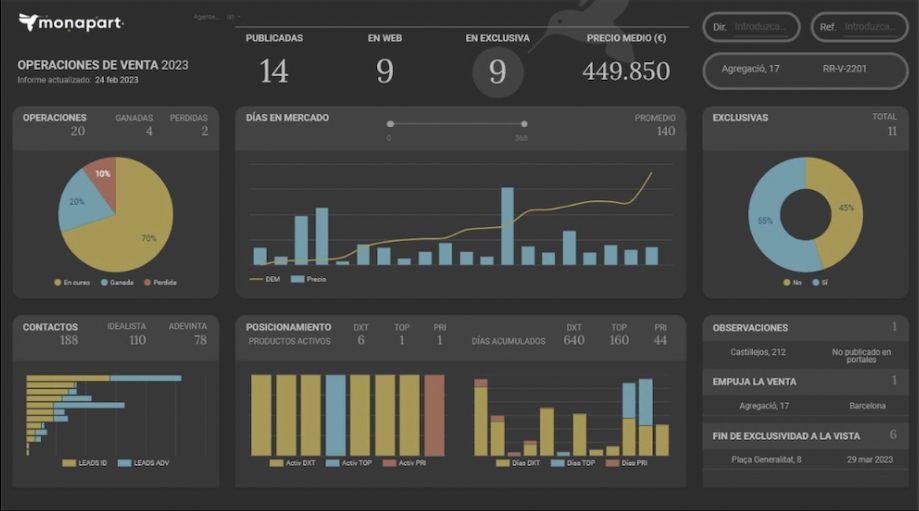4 types of real estate clients
In Monapart we have created our own method to filter and qualify the leads of owners interested in selling a property with us.
Background note 1: What is a real estate client?
Fernando García Erviti is, of all the real estate agents I know, the one who has most and best defended the relationship of necessity between client and exclusive (read his brief and impeccable response to a comment to one of his posts here).
I understand Fernando's arguments and I consider that exclusivity is certainly desirable in order to foster a "fiduciary relationship" between the client and the agentbut although for him the customer-exclusive binomial responds to a model (exclusivity-representation-MLS) and I dare say that to some degree orthodoxy, for us - in Monapart- represents a option within the risk-benefit trade-off that the agent is willing to assume and the opportunity cost at any given time. Examples:
- We can agree not to work on an exclusive basis if we are able to agree on a higher fee. We will take a higher risk of not selling, but if we do sell, our profit will be higher than if we work exclusively.
- We can accept not to work exclusively if at that moment we have idle resources in the company that we cannot apply to the generation of leads or to the conversion of exclusives.
- We can agree not to work on an exclusive basis if our agency model is of warehouse and not from boutiqueas I explained in my last post.
Moreover, in any of these scenarios we can even "go all out", just as it is possible to love a married person wholeheartedly... Another question is the risk that we (freely) assume that he or she will eventually leave us and return to us, or that he or she will never be in our arms, as so often happens in films and in life.
Exclusive or non-exclusive, they are all real estate customers, but they are customers of different services (perhaps in terms of performance and/or price of the service).
Background note 2: What kind of supplier are we as estate agents?
As I understand it the customer must decide what type of supplier he wants and you will have one or the other depending on the service you contract. If you contract an exclusive agency, you will have a supplier that will offer you any value proposition, but whose objective will be (or should be) to sell the property at the optimum price and time. If you hire a non-exclusive agency, you will have one or more suppliers with whatever value proposition, but whose focus will be - attention - not on selling in the best interests of their client, but on selling before any competing agency does!
Exclusive or not, both options are legitimate, but the client must understand that engaging two or more agencies to "compete" shifts the commercial objective from the optimal sale to the fast selling.
The Monapart method of customer classification
At Monapart we use a suitability matrix (figure 1) which is organised according to two variables: level of commitment (with the agency) and degree of cooperation (on sale).
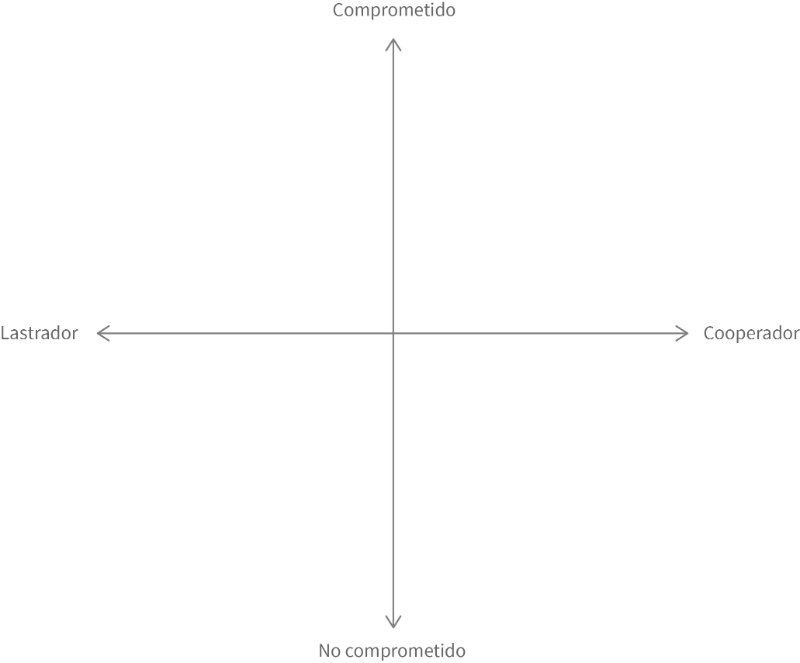
These form the axes (committed-uncommitted and cooperative-laster) which, when crossed, will give rise to the four quadrants in which - after the appropriate telephone questionnaire - we will place the prospects (leads of sellers) according to the customer we think they may end up being: ideal, costly, risky or prohibited customer (Figure 2).
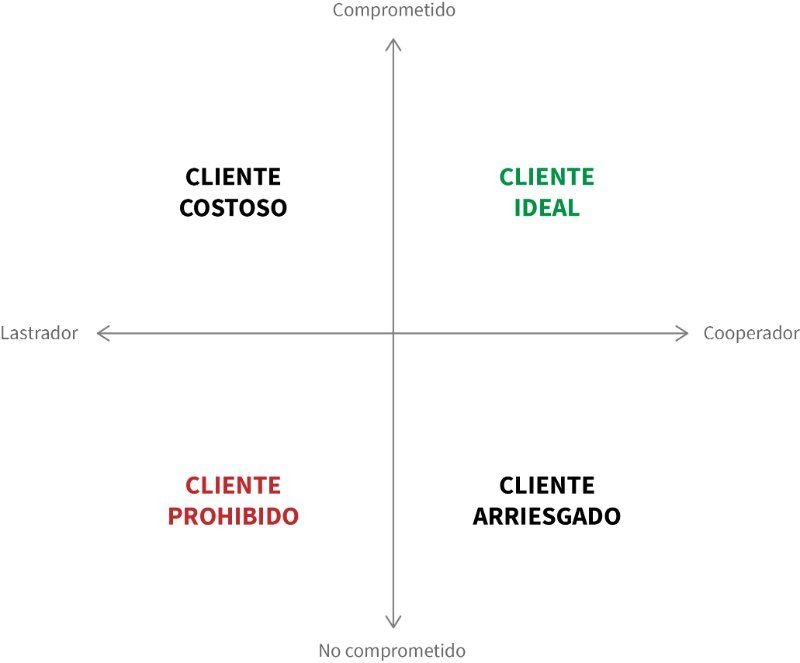
At this point, it is up to each agency/agent to decide whether it is worth dedicating resources to a potential "expensive customer" or "risky customer", and to design and implement the strategy that will turn that customer into an "ideal customer" if desired. This will require (1) implementing actions that neutralise the risk of "risky clients" by getting them to commit to the agency by signing an exclusivity; (2) getting cooperative agreements on price (suitable), schedule (flexible) and condition of the property (perfect) to turn a "costly client" into an ally in the sale; or (3) with time and effort to achieve both and "turn" a "forbidden client" into a "prohibited client"; or (4) with time and effort to "convert" a "risky client" into a "risky client" by getting them to commit to the agency by signing an exclusivity. ideal taking advantage of their exhaustion after months without selling (Figure 3).
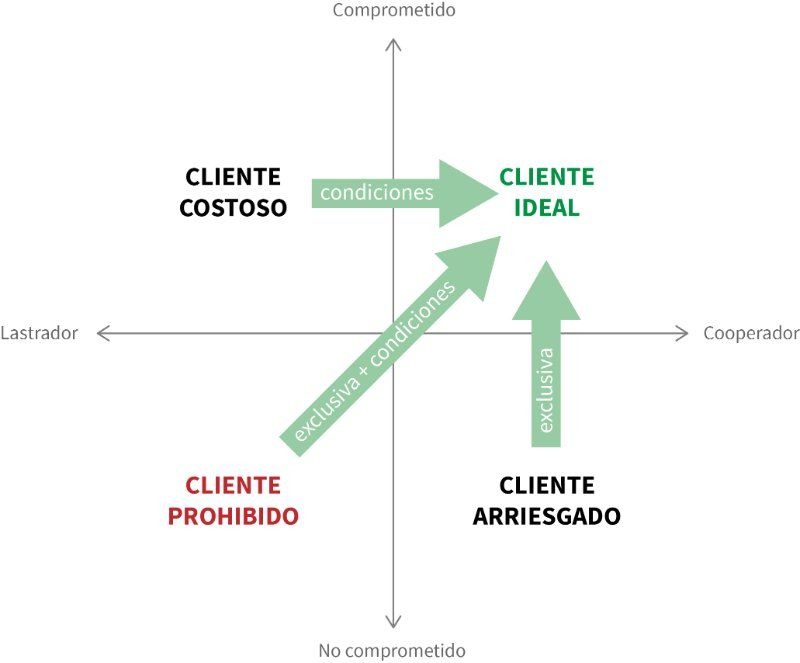
Similarly, each agency will have to decide which service (which conditions) it applies to each of these clients and what fees it considers appropriate to charge and how (an example is given in Figure 4).
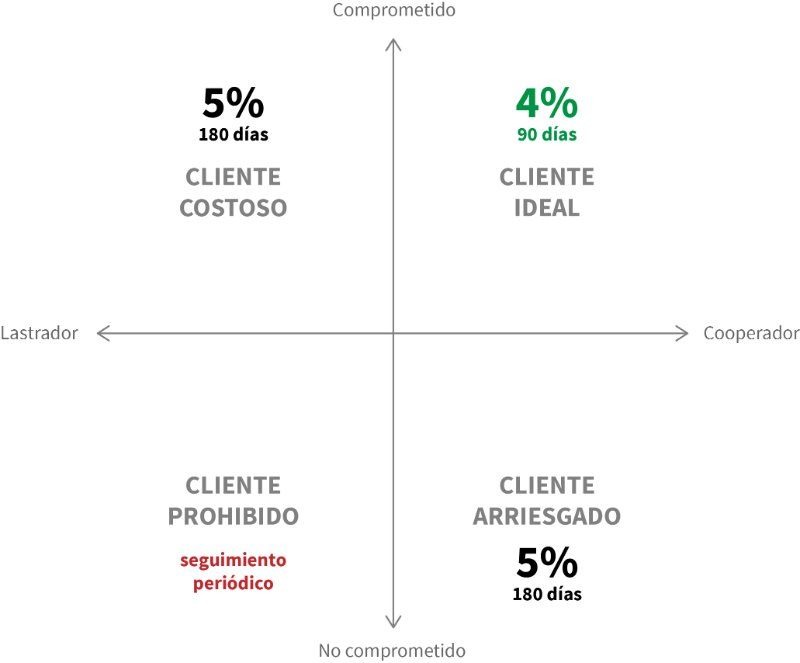
If you found this post interesting, if you are a real estate agent or want to become one, share your comments here. If you are a homeowner -ideal, please! - who wants to sell your property, contact us and you will see why Monapart is an agency unlike any other you may know.



